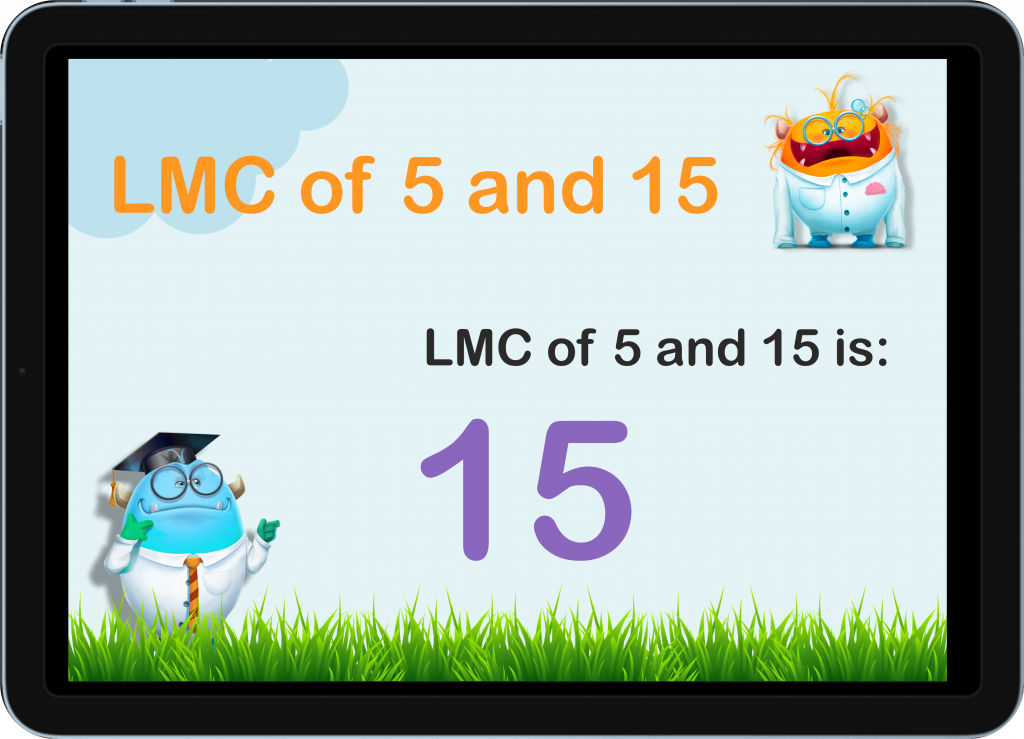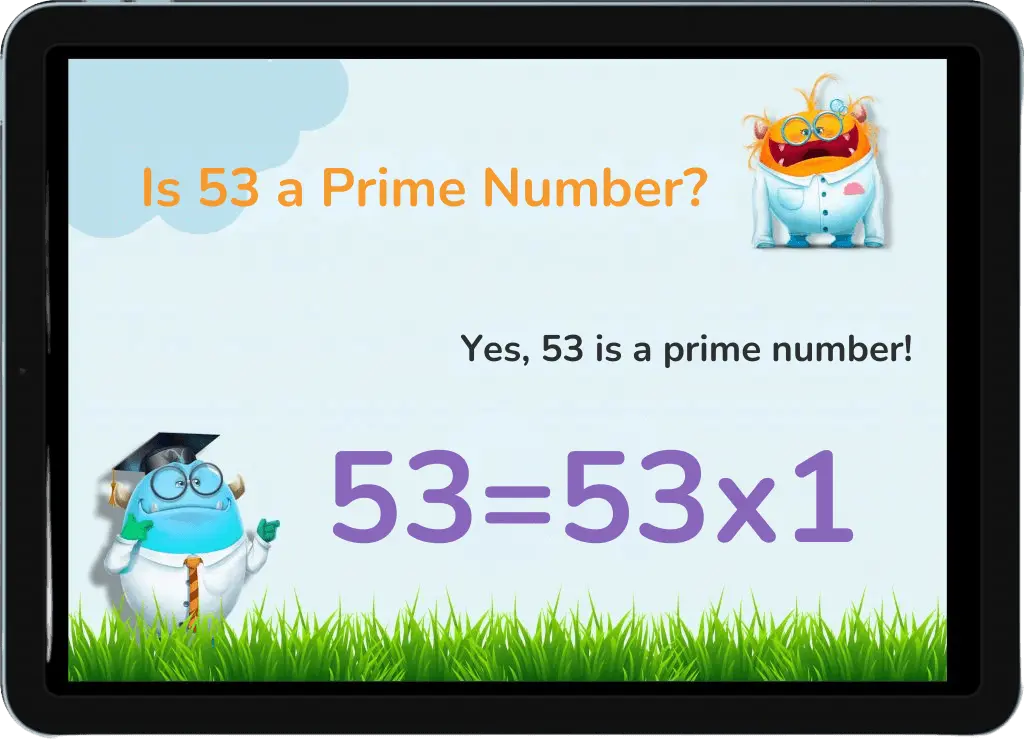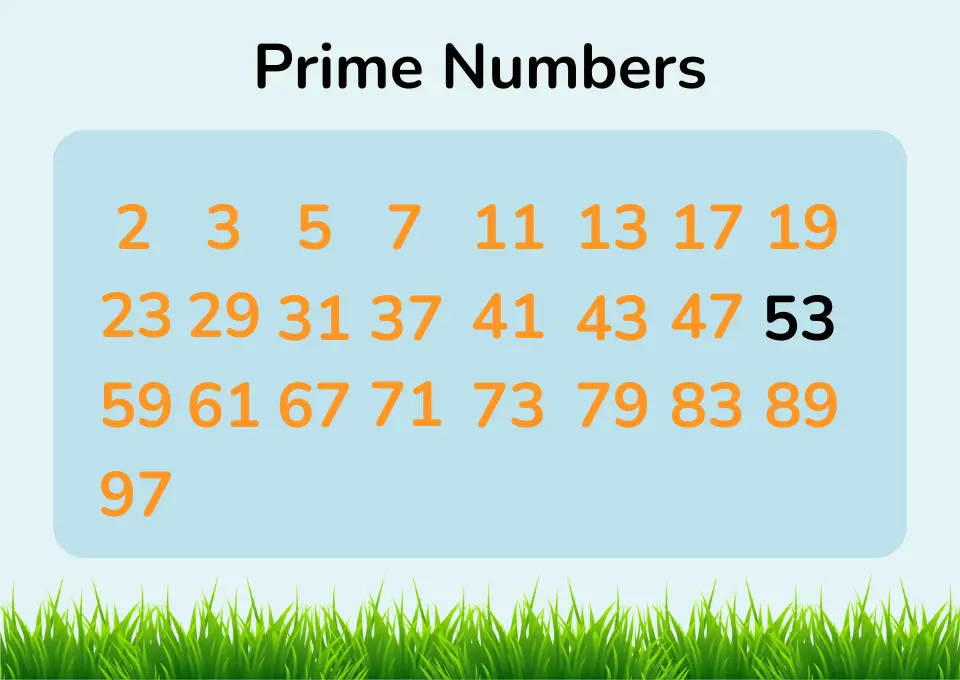Is 2 A Prime Number?
Prime vs. Composite Numbers
Greetings, young math enthusiasts! Today, let’s set sail on a mathematical voyage to determine if 2 is a prime number, and learn more about the difference between prime and composite numbers.

Is 53 a Prime Number?
Or Is 53 a Composite Number?
Have you ever been intrigued by the secrets hidden within numbers? Prime numbers are the unique gems of mathematics, rare and captivating. Today, we’ll explore the fascinating world of the number 53. Let’s dive in!


No credit card required

No credit card required
What are Prime Numbers?
Is 53 a Prime Number?
What Are All the Factors of 53?
What is So Special About the Number 53?
Is 53 a Twin Prime?
Is 53 a Sexy Prime?
Is 53 a Composite Number?
What Are Prime Numbers?
Before we begin, let’s understand why prime numbers are so extraordinary. A prime number is one that can only be divided by 1 and itself without leaving any remainder. Think of prime numbers as the exclusive celebrities of the number world; they only have two “followers”: 1 and themselves. Examples include 2, 3, 5, 7, and 11. Their special characteristic is that they can’t be evenly divided by any other numbers.
Prime numbers form the core of mathematics, much like fundamental building blocks for all other numbers. Just as you can create anything with a few types of blocks, you can construct any number using prime numbers!
Is 53 a Prime Number?

Yes, 53 is a prime number. It can only be divided evenly by 1 and itself without leaving any remainder. This means 53 has no divisors other than 1 and 53. Therefore, it qualifies as a prime number.
What Are All the Factors of 53?
The number 53 is a prime number, which means it has no divisors other than 1 and itself. Therefore, the only factors of 53 are:
- 1
- 53
This is because 53 cannot be divided evenly by any other numbers without leaving a remainder. Prime numbers, by definition, have exactly two distinct positive divisors.
Is 53 divisible by 2? No, because 53 is an odd number, so it can’t be divided by 2.
Is 53 divisible by 3? Add the digits of 53 (5 + 3), which equals 8. Since 8 is not divisible by 3, 53 isn’t either.
Is 53 divisible by 5? No, because it doesn’t end in 0 or 5.
Since 53 isn’t divisible by 2, 3, or 5, and there are no other smaller numbers to check, we can confidently say that 53 can only be divided by 1 and itself. Congratulations, 53, you are a prime number!
What is So Special About the Number 53?
Numbers often have interesting tales, and 53 is no exception. Here are some fascinating facts about 53:
- Fifth Sophie Germain Prime: 53 is the fifth Sophie Germain prime, which means that both 53 and 2(53) + 1 = 107 are prime.
- Safe Prime: 53 is a safe prime because (53-1)/2 = 26, which is also a prime.
- Balanced Prime: 53 is a balanced prime, meaning it is the average of the primes immediately before and after it (47 and 59).
- Prime Triplet: It forms a prime triplet with 47 and 59.
- Chen Prime: 53 is a Chen prime, which means 53 + 2 = 55 is either a prime or a product of two primes.
- Centered Triangular Number: 53 can be represented as a centered triangular number.
- Hexagonal Star Number: It is also a hexagonal star number, which means it can form a hexagon with a star inside.
Is 53 a Twin Prime?
No, 53 is not a twin prime. It doesn’t pair with any other prime number. In order to have a twin two primes need to differ by only 2.
Is 53 a Sexy Prime?
Yes, 53 is a sexy prime. It forms a sexy prime pair with 47, meaning they differ by 6. If they differ by 6, then they make a sexy prime.
Oh wait, there’s more. It seems 59 is also a prime number. Can you notice something else here? 53 is sexy prime in relation to another number, 59. This makes 59 super special – it’s double sexy!!!
Is 53 a Composite Number?
No, 53 is not a composite number. Composite numbers have more than two divisors, whereas 53 can only be divided evenly by 1 and itself. This makes 53 a prime number, not a composite one. Therefore, 53 is part of the set of prime numbers, which have exactly two distinct positive divisors.
Start Learning, It’s Fun!
Smartick offers fantastic free learning courses where you can dive deep into the world of prime numbers and much more. It makes math fun and engaging, turning learning into a playful adventure. With interactive lessons and games, Smartick ensures that math is not only educational but also enjoyable.
You’ll find yourself looking forward to each session as you explore new mathematical concepts in a captivating way.
What are you waiting for? Give it a try and see if you find math much more exciting!
Learn More About Prime Numbers
© 2024 Smartick. All Rights Reserved.
